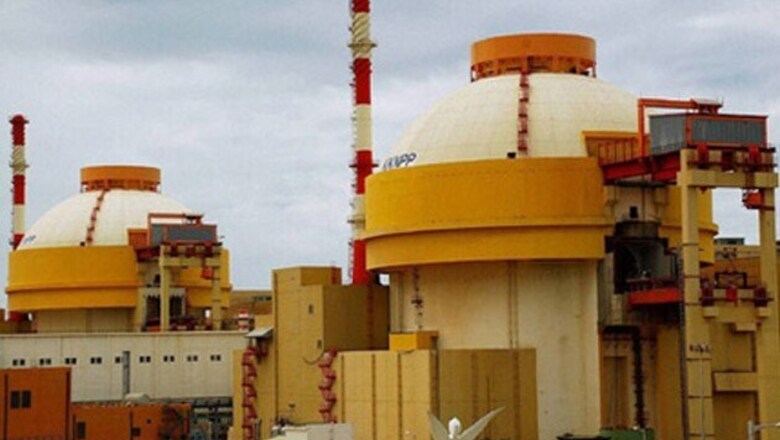
views
Chennai: With fine-tuning of systems still on, power generation at the first 1,000 MW unit of the Kudankulam Nuclear Power Project (KNPP) is expected to happen in October-end or November, a senior official said on Saturday.
"Fine-tuning of systems are on. WE have gone up to 20 per cent/200 MW power levels. We might start running the turbine next week. We have not run the turbine till now. WE are not in a position to put a date as to when the unit would be connected to the grid," RS Sundar, site director of the KNPP told IANS over phone from Kudankulam.
Sundar said the connection to the grid too is expected to happen in October or November.
The first unit at Kudankulam 99.74 per cent complete, as of August 2013, officials said.
The Nuclear Power Corporation of India Limited (NPCIL) is setting up two 1,000 MW Russian reactors at Kudankulam in Tirunelveli district, around 650 km from Chennai.
KNPP is India's first pressurised water reactor belonging to the light water reactor category.
The first unit attained criticality, which is the beginning of the fission process, for the first time on July 13.
The NPCIL had earlier said it would connect the first unit to the grid end-August, generating 400 MW power.
But that did not happen due to two condenser valve problems which seem to have got stuck. "Everything is fine on the reactor side. The problem was at the electrical systems side and it was also sorted out," the source said.
The second unit at KNPP is expected to start commercial operations in June next year. The unit has achieved progress of 95.50 per cent as of August.
The NPCIL has loaded dummy fuel assemblies in the second unit. The dummy fuel assemblies are made of lead, instead of uranium, and are the exact replica of the actual nuclear fuel assemblies, both in dimension and weight.
A total of 163 dummy fuel assemblies have been loaded into the core.
According to a source, NPCIL has decided to train its focus on successful commissioning of the first unit and hence the work on the second unit is going a bit slow.


















Comments
0 comment